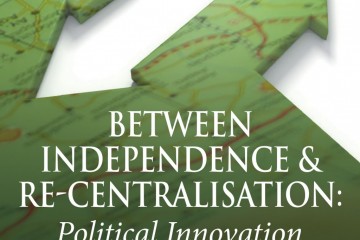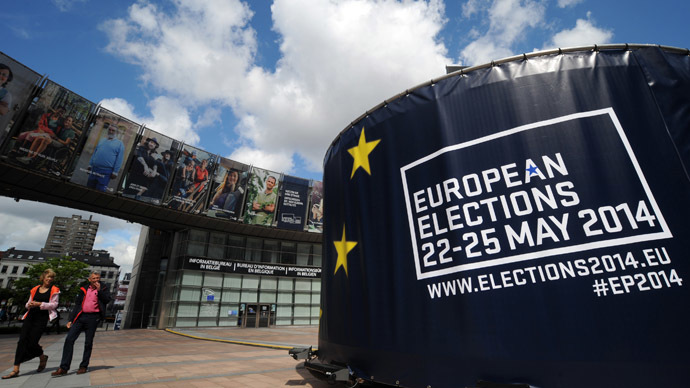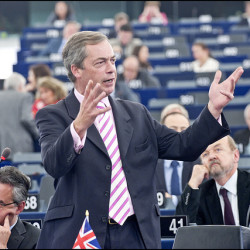
The making of the Greater Manchester mayor – what next?
Much has been made of backroom deals between the Chancellor George Osborne and Manchester City Council’s chief executive Sir Howard Bernstein to deliver the most significant devolutionary settlement of Whitehall budgets in England. The price of the deal is an elected mayor, who from 2017, will oversee significant sums of devolved spending, answerable to a cabinet made up of the ten council leaders of the Greater Manchester authorities. For some attending a cities@manchester debate earlier this week, the imposition of an elected mayor is seen as an unwelcome and undemocratic step. But this view underplays the way in which this deal represents the culmination of over ten years of hard work and commitment by all the region’s elected leaders (and their officers) to collaborate …

Government in Greater Manchester: A mayor for all seasons?
From June, Greater Manchester will get an interim mayor as part of a deal with the Government on regional devolution. But its imposition without a referendum is a fundamental error by the political elite that may well backfire, argues Professor Colin Talbot. ‘Mayors’ seem to have become the default answer of many in the political elite to the problems of local government and governance in the UK, or more specifically England. Linked to the idea of English devolution as an answer to Scottish ‘home rule’ this has become a heady brew. But maybe it’s time to ask some sober questions about this project of ‘Devo Manc’, at least in terms of the proposed system of government for Manchester. My argument is, …

The Metropolitanisation of Nationality? City-regions, autonomy and the territorial state
The recent plebiscite on Scottish independence has triggered a much wider debate in the UK about the organisation of state power in institutional and territorial terms.
In particular, the role and economic position of the main cities vis-à-vis the state have raised headlines about ‘cities going independent’, such as ‘Devo Met’ (The Economist, 25 Oct 14). This not only continues the strong focus on the economic dimension of statehood and its territorial and institutional manifestation, but also that of identity and the sense of community (commonality). No longer, so it seems, does nationality operate automatically through the ‘nation state’ as a territorial and governmental entity. Instead, metropolitanism is encouraging, perhaps requiring, a ‘reterritorialisation of politics’ (Sellers and Walks, 2008). This growing emergence of an urban (metropolitan) dimension to national (and international) discourses on shared values, imaginations and common purpose has come to challenge the nationalisation thesis formulated as part of ‘political modernisation’ (Hofferbert and Sharkansky, 1971), and its primary focus on territorial states as expressions of an existing and cohesive civil society, or as ‘nationalisers’ seeking to shape a national identity (Brubaker, 1995). This once prevailing thesis propagates national contexts as dominant, hegemonial conditioning factors which reach across states, including regional and local identities and discourses, whether urban or not. The understanding of nationality has thus been viewed from a top-down perspective of discursive nationality, and corresponds with the territorial view that cites, being down the scalar hierarchy from the state, are automatically an integral part of that – bigger – entity – geographically, institutionally and discursively.
Such, in effect, triple hierarchisation – where territory, institutional power structures and discourse of identity and belonging (communality) sit in parallel hierarchical arrangements – is now being challenged by a growing urban/metropolitan voice stepping out of the seemingly homogenous sonority of a national discursive ‘backcloth’. This may appear as a reverse step to the integrative, even homogenising, effects of nationalising politics (Caramani, 2004), seeking to overcome spatial and societal differences in identities and sense of belonging. From such a (conventional) perspective, states are seen as the ‘natural’ rallying points of national discourses of self-determination and their geographic manifestation.

Between Independence & Re-centralisation: Political Innovation in an Age of Devolution
In 2014 the push for devolution became a major political issue. Scotland remains in the UK, but only after last minute bargaining devolved further powers to Holyrood. This has encouraged calls for more devolution of powers to Scotland, Wales, Northern Ireland and for the formation of an English parliament. George Osborne’s Autumn Statement proves that Westminster is listening. Meanwhile, MPs and local governments want more powers entrusted to local authorities. Manchester is following Bristol’s lead in appointing a mayor.
The UK is not alone in this trend. Emboldened by the experience in Scotland, Catalonia held an independence vote of its own, even if unrecognised by the government in Madrid. Legal or not, that vote may also boost efforts in the Basque Country, Bavaria and Flanders.
While these votes may prove unsuccessful, the tension surrounding them will linger. The issues depend on the contextual consequences of the increasing trend towards devolution. There are two forces operating in two different directions: on the one hand, city/regional small nations are demanding Independence from their referential nation-states, while on the other hand, nation-states themselves are re-centralising or decentralising their structures and powers.
Over the coming months, this Special Series will focus on the diverse angles to this debate by identifying and emphasising certain innovative and thought provoking case studies for the purpose of comparison.
Posts will cover topics like the re-scaling of nation-states, constitutional change, the right to decide, independence movements, the federal EU hypothesis, the Europe of Regions approach, democratic participation and civic nationalism in relation to city-regions.

Let the people speak! The state of devolution, decentralization and deliberation in UK politics
Democratic pressure is building, cracks and fault-lines are emerging and at some point the British political elite will have to let the people speak about where power should lie and how they should be governed. ‘Speak’ in this sense does not relate to the casting of votes — the General Election will not vent the pressure — but to a deeper form of democracy that facilitates both ‘democratic voice’ and ‘democratic listening’.
In the wake of the Scottish referendum on independence the UK is undergoing a rapid period of constitutional reflection and reform. The Smith Commission has set out a raft of new powers for the Scottish Parliament, the Chancellor of the Exchequer has signed a new devolution agreement with Greater Manchester Combined Authority, the Deputy Prime Minister has signed an agreement with Sheffield City Council, and the Cabinet Committee on Devolved Powers has reported on options for change in Westminster. One critical component of this frenetic period of reform has been the absence of any explicit or managed process for civic engagement even though the Prime Minister’s statement on the 19 September 2014 emphasized that ‘It is also important we have wider civic engagement about how to improve governance in our United Kingdom, including how to empower our great cities. And we will say more about this in the coming days’.
The days and months have passed but no plan for civic engagement has been announced.
In the meantime, calls for a citizen-led constitutional convention have been made with ever increasing regularity and volume.

Populism vs. Technocracy? How political parties adapt to new dominant narratives.
Over the last decades, populism and technocracy have attracted a great deal of public attention and generated a lively scholarly debate. As it has recently been argued, they have emerged as the two dominant discourses on the European political scene. As the 2014 European elections clearly showed, even traditional, mainstream political parties increasingly rely on either or both these narratives. One insightful example is the discursive practices of Matteo Renzi’s Democratic Party during the Italian electoral campaign.
After his rise as party leader and then Italy’s youngest ever Prime Minister, Renzi has become a favourite of the international press. As early as 2010, when he was still mayor of Florence, the Tuscan politician proved himself an extremely skilled communicator. His idea of ‘rottamare’ (‘scrapping’) the entire political class had an extremely wide impact on public opinion and soon became a slogan for all those who wanted to contest the status quo in Italian politics. The growing support he received from the public convinced him to run for his party’s leadership primaries in 2012 and then, successfully, in 2013. Nowadays, Renzi’s PD embodies an arguably renewed organisation. The internal opposition has been gradually marginalised and the re-compacted majority has developed a political discourse based on pragmatism, hope for the future and the need for change. In particular, one can observe how the PD has gradually assimilated populist and technocratic discursive strategies by examining the ways in which it deals with a key issue such as the European Union.
The populist mode. According to a growing body of literature, typical examples of populist discursive practices include the reliance upon Manichean oppositions, romanticised and essentialist visions of the people, appeals to the multitude whilst excluding others and extreme simplification and moralisation (Wodak 2003).

Blue Labour and Conservatism
Following Labour’s defeat at the 2010 general election, a new intellectual movement, close to the new leader Ed Miliband, began to gain ground within the party. ‘Blue Labour’ is most closely associated with the academic and activist Maurice (now Lord) Glasman and a small group of intellectuals and politicians. The Blue Labour agenda is set out in an ebook from 2011, The Labour Tradition and the Politics of Paradox (edited by Maurice Glasman, Jonathan Rutherford, Marc Stears and Stuart White), at the core of which is a powerful critique of Labour Party thought and policy since 1945. While many Labour supporters, activists and politicians see the achievements of the Attlee administrations as the apogee of the party’s history, Glasman and co. argue that Labour took a fundamentally wrong-turn after the Second World War, jettisoning an earlier Labour tradition of working class struggle, mutual assistance and self-help in favour of a top-down, elitist and bureaucratic model of social democracy. The principle authors argue that this basic settlement survived both the revisionism of Tony Crosland and the changes wrought by New Labour in the 1990s, contributing to the defeat of 2010, and the situation where Labour has alienated large swathes, not just of the middle class electorate, but of its traditional core working class vote as well.
The ebook is unashamedly iconoclastic—at least to those schooled in a more orthodox reading of Labour party history—but perhaps its most unexpected claim is to the mantle of conservatism. In an essay entitled, ‘The future is conservative’, the cultural theorist Jonathan Rutherford argues that Labour,
…needs to rediscover England’s radical traditions that are rooted in the long political struggle against dispossession. This includes reconnecting with an English socialism that grew out of the struggles for land and for the ownership of one’s own labour against the forces of the market and of arbitrary power. In this post-crash era, and in the wake of unregulated globalisation, Labour needs to develop a politics of belonging and a reform of capitalism that draws on the traditions of the common good and a common life.
New Labour, argues Rutherford, was, in the end, insufficiently attentive to those left behind by globalisation, those whose jobs and communities had been sacrificed to the vagaries of the market. Rutherford argues that Labour must reconnect with the long tradition of English radicalism, stretching back over centuries, grounded in the struggles of ordinary working men and women attempting to resist the dispossession and commodification that accompany the spread of capitalism. His conservatism is about the importance of stability and continuity in work and local communities and in recognising the importance of rootedness and a sense of home.
There are strong hints here of the conservative philosopher Roger Scruton’s insistence on the centrality of the experience of home to English identity: “England was first and foremost a place—though a place consecrated by custom.” Scruton is certainly a thinker Blue Labour likes to engage with. In a recent blog post for (the appropriately titled) Conservative Home, the Labour party’s Policy Co-Ordinator, Jon Cruddas MP (also a contributor to The Labour Tradition), reflects on Scruton’s new book, How to be a Conservative: he describes his Conservatism as a love of home. By which he means the common life and inheritance that belongs to “us”, the people, and which grows out of everyday life. Home is our customs, habits and language, our neighbourhoods and the landscapes we live in. It is also the generations who have been and those to come, the history of our country, and our memories. It is not ethnic in its origins, but it requires integration into its membership.

Where is British conservatism today: UKIP, conservative, libertarian or something else?
As was said in the opening paragraph of this series, a well-rehearsed interpretation of UKIP is that they are a grouping to the right of the current Conservative party, dissatisfied with the old party’s failure to stand up to Europe and its perceived leftwards shift under Cameron. In this view, UKIP are, to quote a recent Labour party campaign, “more Tory than the Tories”. There is certainly something to be said for this claim. Leading figures in the party, as well as party activists, are former members of the Conservative party, not least Nigel Farage himself. While we await their 2015 election manifesto, a number of policies that have been proposed recently also seem to point in the direction of an ultra-Tory agenda, such as plans to abolish inheritance tax. But UKIP’s own constitution brands it as a “democratic, libertarian party”, while its most famous recent acquisition, Douglas Carswell, describes himself on his own twitter account as a “free trade Gladstonian liberal”. What are we to make then of UKIP’s ideology and identity?
Firstly, it is only right to point out that UKIP, like almost all political parties, represents a coalition of different views. In particular, it displays a similar kind of mix of conservatism, liberalism and libertarianism that we find in the Conservative party. It is probably fair to say that libertarianism is a term less familiar to British political culture than to that of the United States, but British conservatives (including members of the Conservative party) often like to claim the mantle of liberalism and individual liberty, usually relating these ideas to the promotion of free enterprise, reduced state intervention in the economy and individual responsibility. That Mrs. Thatcher was an ardent admirer of Gladstone is no secret, and Simon Heffer has gone as far as to argue that she is best understood as a latter-day champion of Gladstonian liberalism, rejecting many of the values that had come to be associated with Toryism in the nineteenth and twentieth centuries, such as paternalism and protectionism. It is worth noting that Gladstone himself began life as a Tory.
But once again, it might be argued that this merely attempts to reduce modern conservatism—encompassing UKIP—to free-market liberalism, when in fact it can be clearly distinguished from liberalism in other crucial respects. First of all, patriotism and nationhood are clearly central to both the contemporary Tory party and to UKIP. While both express outward-looking views on free trade, they also wrap themselves unashamedly in the flag and bang the drum for British values and virtues wherever possible. On the issue of mass immigration, while the Tory party are more divided, UKIP are, of course, vociferously opposed, pointing to the need to withdraw from the EU as the only way to guarantee full control over migrant entry into the country. Compare this to the liberal internationalism of Nick Clegg, an economic liberal in key respects, but alone amongst the three main party leaders in his outspoken support for the EU. Other UKIP policies are also suggestive of an ultra-conservative agenda rather than a liberal one, including the promotion of grammar schools and tougher sentences for prisoners. Then there are those amongst the party’s rank-and-file who occasionally crop up to embarrass the leadership, like councillor David Silvester, who, earlier this year, claimed that recent flooding had been the result of the government’s legalisation of gay marriage. While there is no suggestion that this particular view is widespread within the party, it nonetheless hints at an undercurrent of extreme, evangelical social conservatism that feels quite alien in secular Britain, but is perhaps not quite as distant as we like to think.









